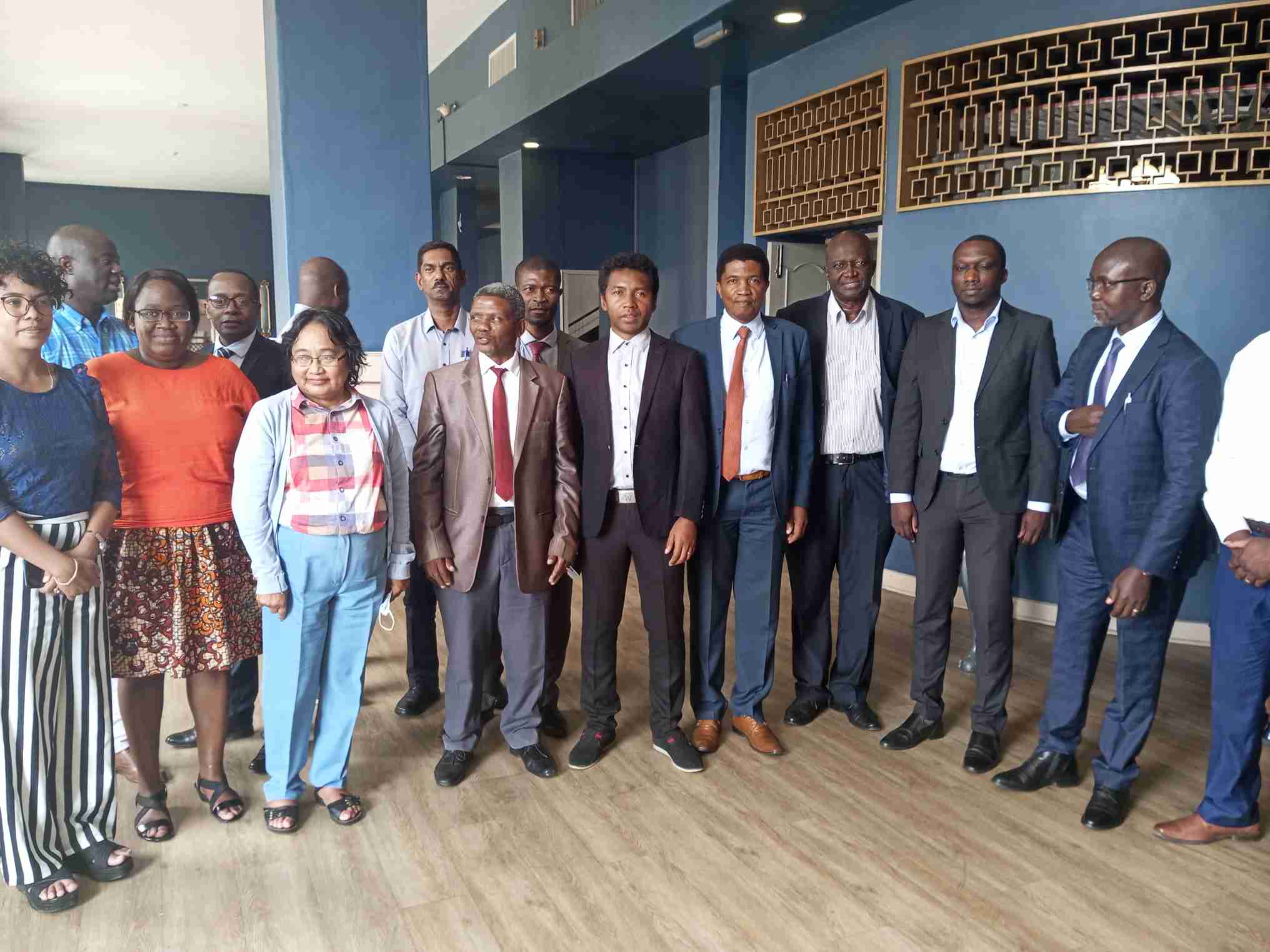|
Getting your Trinity Audio player ready...
|
Mr. Pardon Njerere, a Value Chain Expert under the COMESA’s European Union-funded Regional Enterprise Competitiveness and Access to Market Programme (RECAMP), commended the role of Climate Smart Agriculture initiatives in catapulting production gains of food systems to promote regional trade and integration.

He made the remarks during the COMESA Regional Dissemination Meeting on Climate-smart Agriculture Best Practices in Harare.
Mr. Njerere said agriculture value chains are at the core of driving COMESA inter and intra-regional trade, food security and industrialisation agenda.
“Prospects of achieving these goals are under threat due to climate-related challenges that continue to shrink yield growth space. The adoption of climate-smart agriculture is a sure case of climate-proofing production systems and promoting sustainable regional agriculture value chain transformation.
“If the COMESA region is to sustain its food systems and completely remove dependence on global imports that can be affected by shocks such as the Russia-Ukraine conflict and COVID-19, Member States need to accelerate upscaling of climate-smart agriculture best practices shared during this workshop,” Mr. Njerere said.
Mr. Stephen Muwaya, the Agro-Resilience Executive Director gave an overview of the climate change policy landscape, unpacked COP27, and discussed the roadmap to COP28. He alluded to the importance of stabilization of greenhouse gas concentrations in the atmosphere at a level that would prevent dangerous anthropogenic interference with the climate system.
“Such a level should be achieved within a time frame sufficient to allow ecosystems to adapt naturally to climate change, to ensure that food production is not threatened, and to enable economic development to proceed in a sustainable manner,” he said.
He said the United Nations Framework Convention on Climate change (UNFCC) urges parties, relevant organizations, and other groups to increase their efforts in relation to promoting sustainable agriculture, including by strengthening the role of indigenous peoples and local communities, particularly women and youth, with a view to eradicating hunger and poverty while ensuring food security.
“The convention invites parties to consider policies, actions, and measures relevant to implementing climate-smart agriculture. There is a need for enhanced climate action on agriculture and food security, and for enhanced coordination with and among actors outside the UNFCCC. It also invites the current and future Presidencies of the Conference of the Parties, high-level champions, and other actors, when promoting climate initiatives, to take into account the conclusions in paragraph 2 of Article 2 of the UNFCCC,” Mr. Muwaya said.
The COP 27 Decision on Sharm el Sheikh Joint work on the implementation of climate action on agriculture and food security points to a number of key deliverables.
It recognises that policy responses in agriculture are more likely to succeed if they consider the role of farmers as key agents of change. On the other hand, the increasing frequency of extreme weather events has exposed millions of people, especially small-scale farmers, those from low-income households, indigenous peoples, women, and youth in developing countries, to acute food and water insecurity.
Thus, solutions must be context-specific and take into account national circumstances, especially if they are to be scaled up. Farmers, including smallholders and pastoralists, are stewards of the land and are inclined to apply sustainable land management approaches.
Issues relating to soil carbon, soil health, and soil fertility, as well as sustainable soil and integrated water management, should be dealt with in a holistic and inclusive manner. Soil and nutrient management practices and the optimal use of nutrients, including organic fertilizer and enhanced manure management, lie at the core of climate-resilient, sustainable food production systems and can contribute to global food security.
Sustainable approaches can render multiple benefits for society, such as improved water quality, higher biodiversity, and increased soil organic matter. It is important to incorporate diversification, recycling, and efficiency, and support synergies within agricultural systems.
Socioeconomic and food security dimensions are critical when dealing with climate change in agriculture and food systems. Innovative policy and social approaches to scaling it up, such as institutional arrangements, partnerships, and farmers’ empowerment, can incentivize the scaling up of best practices.
Successful policy innovations can include extension services and farmers’ self-organization. There is a need to improve the enabling environment for mobilizing resources for implementing action at the local, national and international levels and identify modalities for addressing challenges and exploring opportunities for accessing existing means of implementation.






